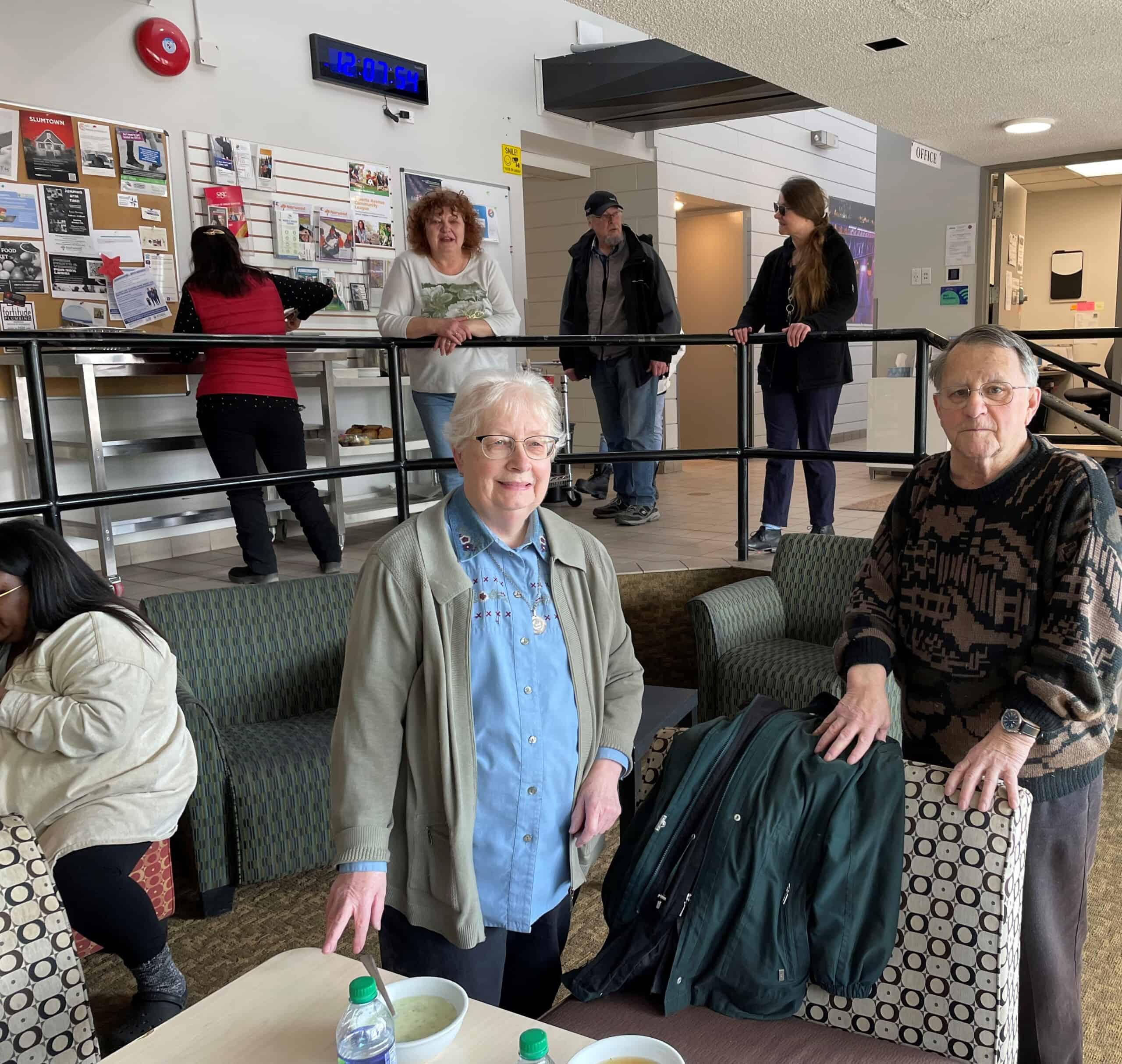Encourage sharing and inclusion
The Seniors’ Group at Alberta Avenue Community League meets every Tuesday. Sitting in the lounge, we have lunch at noon and catch up on events. Some days we go on a field trip, such as a visit to the Alberta Aviation Museum. A few of us play pickleball in the gym, with no rules and often no net.
Recently, we got to know one another better by answering a few simple questions from the new Toolkit for Fostering Inclusion in Senior Serving Organizations, prepared by Age Friendly Edmonton and Edmonton Social Planning Council.
In the process, we discovered important things about our approach to inclusion. Even better, this toolkit is good for any group wanting to open its doors to others, to share community and culture.
According to Age Friendly Edmonton: “Inclusion means valuing the differences in the community and actively seeking out different perspectives. It means looking at how we might do things differently to benefit all members of our community. Inclusive practices are not just to benefit ‘other’ people but are usually good for everyone.”
The first set of questions revolve around being welcoming. Does our group encourage existing seniors to welcome new members? Are there meaningful opportunities for new seniors to form connections with others?
Victoria Harrington is a practical person. She’s a grandmother who often brings her preschool granddaughter to league events. As her granddaughter’s caregiver, Harrington enjoys socializing and relaxing with the Seniors’ Group, but recognizes it’s not always possible to join a group like ours. “Outside influences, such as bus fare or family responsibilities, may make it hard for some people to get here,” she observes. “Once you do get here, there are plenty of opportunities to participate.”
Carol Brooks, the group’s coordinator, helps new people feel welcome by sharing food she’s prepared. A vegetarian option is usually offered.
Jocelyne Forget says, “We have a small group and we welcome newcomers. It’s easy to get to know them. Sometimes people just drop in now and then.”
Husband Gerard Forget adds, “We are diverse and come from different backgrounds.” He grew up in northern Alberta on a farm without running water or electricity. Forget helped establish the community league’s garden and beehives. He enjoys sitting outdoors with other seniors in the summer. When it comes to learning about other cultures, he suggests, “We can add field trips to go to places and learn about other cultures.”
Only a few of us have attended a workshop on equity, diversity, and inclusion. “I went to one held at the [Canadian] Native Friendship Centre before Covid,” shares Harrington. “It was cool; it was intense.”
Frances Bernard and other group members agreed that it would be a great idea to seek out a speaker or workshop.
At the end of our discussion, Gerard Forget recalled his first job as a taxi driver in Peace River. “My bosses were two Ukrainian brothers, and they were my best bosses. When I worked the oil rigs in Fort St. John, I mixed with all kinds of people. We didn’t separate ourselves. We didn’t put ourselves or others into a box.”
Inclusion is in the spotlight. For our group, it’s the way to go.
To access and download the Toolkit for Fostering Inclusion in Senior Serving Organizations, visit seniorscouncil.net/diversity-and-inclusion-toolkit.







